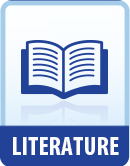|
This section contains 8,519 words (approx. 29 pages at 300 words per page) |

|
SOURCE: "Epistemology and Musical Form in Conrad Aiken's Poetry," in Studies in the Literary Imagination, Vol. XIII, No. 2, Fall, 1980, pp. 7-25.
In the following essay, Hagenbuechle argues that in Aiken's search for a poetic language and style that would be adequate both to awaken and to articulate human consciousness, he turned to the language of music
Throughout his life Conrad Aiken considered investigation into the human mind as a matter not only of personal concern but also of greatest social consequence, believing "that in the evolution of [his] consciousness … man possesses all that he could possibly require in the way of a religious credo."1 Mankind's ultimate achievement of godhead, by which Aiken means total awareness, cannot be reached without the specific contribution of poetry whose supreme function is to give voice to the unspoken sensibilities of the age. In "Poetry and the Mind of Modern Man," Aiken claims...
|
This section contains 8,519 words (approx. 29 pages at 300 words per page) |

|


